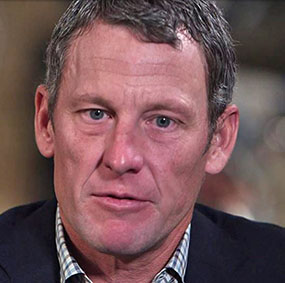(Reuters) – Former cycling champion Lance Armstrong yesterday agreed to pay $5 million to settle a federal suit claiming he defrauded his sponsor, the U.S. Postal Service, by using performance-enhancing drugs, his attorney and federal officials said.
The settlement ends the long-running false claims suit brought by fellow cyclist Floyd Landis and joined by the U.S. government, which had sought $100 million in damages on behalf of the Post Office, according to statements from Armstrong’s attorney, Elliot Peters, and the U.S. Department of Justice.
“No one is above the law,” Acting Assistant Attorney General for the Justice Department’s Civil Division Chad Readler said in a statement. “This settlement demonstrates that those who cheat the government will be held accountable.”
In his statement, Peters said, “Lance is delighted to put this behind him.”
By phone, Peters told Reuters that he thinks the Postal Service realized it could not prove damages to it caused by Armstrong’s behavior. He said the settlement was reached ahead of a scheduled May 7 trial date.
Armstrong, who is now 46 and lives in Austin, Texas, won the biggest race in professional cycling, the Tour de France, a record seven times, six of them while riding for the Postal Service team. He was stripped of his titles and banned for life from the sport in 2012 by the U.S. Anti-Doping Agency after it accused him in a report of engineering one of the most sophisticated doping schemes in sports. Armstrong admitted to the cheating in a January 2013 televised interview with Oprah Winfrey.
This is the last legal matter related to Armstrong’s doping, Peters said.
“I’m looking forward to devoting myself to the many great things in my life — my five kids, my wife, my podcast, several exciting writing and film projects, my work as a cancer survivor, and my passion for sports and competition,” Armstrong said in a statement provided by Peters.
The settlement also calls for Armstrong to pay $1.65 million for the court costs of his former teammate Landis, who also used performance-enhancing drugs and who was stripped of his 2006 Tour de France championship.
Landis originally brought the lawsuit in 2010 under a federal law, the False Claims Act, that lets whistle-blowers pursue fraud cases on behalf of the government, and obtain rewards if successful. Landis will receive $1.1 million as his share of the settlement.
The Justice Department joined the case in February 2013 after Amstrong’s public confession.










